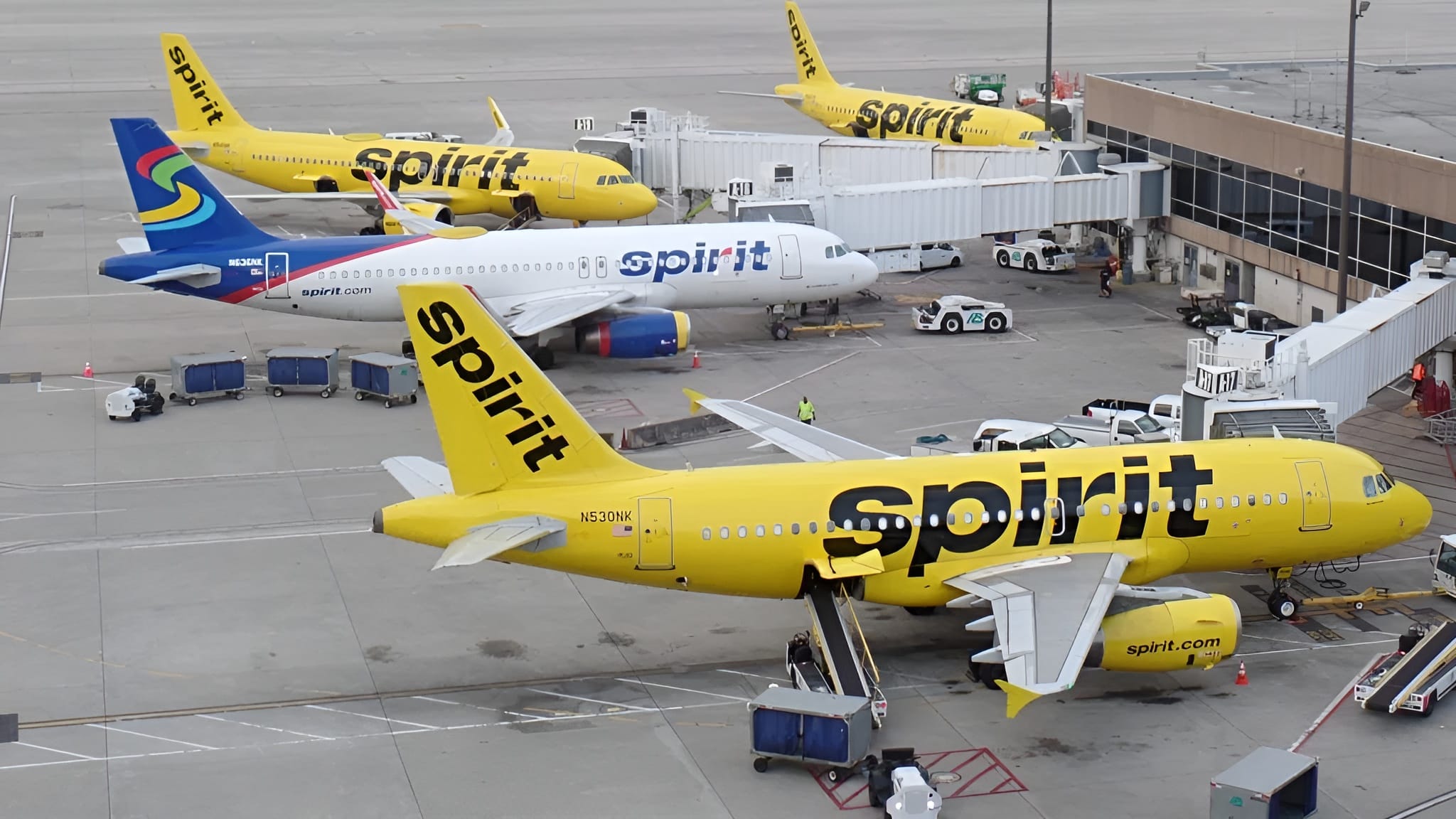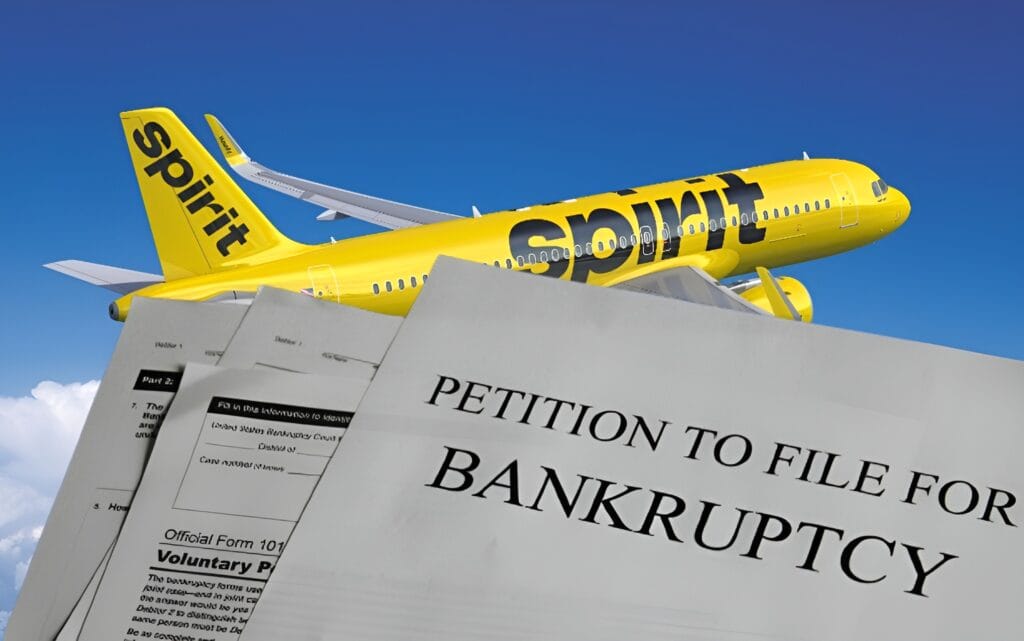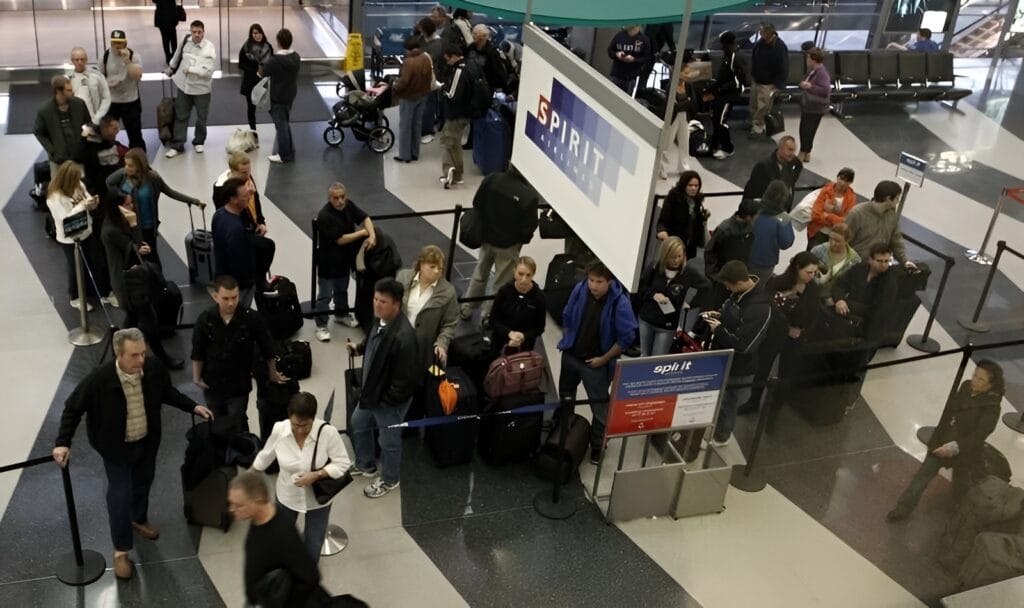
Spirit Airlines Bankruptcy Explained: Causes, Impact, and What’s Next for Budget Flyers
Spirit Airlines, a longstanding pioneer in the cheap airline sector, has just initiated Chapter 11 bankruptcy procedures. The airline industry and individuals who gain from economical air travel have significant implications for this advancement. This article examines the causes of the Airlines’ financial difficulties, the consequences of its bankruptcy for various stakeholders, and the future for budget-conscious travelers.
Factors Contributing to Spirit Airlines’ Bankruptcy

Multiple causes prompted Spirit Airlines to pursue Chapter 11 bankruptcy protection:
Negotiations for a merger between Spirit Airlines and JetBlue, as well as Frontier Airlines, have collapsed. The agreement was annulled in March 2024, failing to get past a federal judge who obstructed the intended $3.8 billion merger with JetBlue due to antitrust issues in January 2024. Following the breakdown of negotiations with Frontier Airlines, it found itself once more devoid of a financial strategic partner.
Escalating Financial Difficulties: Spirit Airlines has incurred losses exceeding $2.5 billion since the onset of the COVID-19 epidemic in 2020. They took significantly longer to recover than their competitors following the pandemic’s devastation of travel demand.
Intensifying Competition: Prominent airlines launched low-cost flights, jeopardizing Spirit’s market position. The heightened competition hindered their ability to retain clients and generate profit.
Operational Challenges: The necessity for approval of Pratt & Whitney engines has resulted in the grounding of different aircraft, so delaying operations and diminishing income.
Escalating Operating Expenses: The modest revenue growth and inability to sustain an ultra-low-cost model due to surging labor and fuel costs strain Spirit’s cash sheet.
Consequences of the Bankruptcy
The ramifications of these bankruptcy petitions are fourfold:
Passengers: Spirit Airlines has said that it intends to sustain regular operations during its bankruptcy proceedings. Passengers may continue to acquire flights, and any existing bookings, coupons, or points will be preserved. Travelers should stay cognizant of any alterations and/or interruptions to flights or services.
For Personnel: The airline aims to retain its workforce during the reorganization process. However, this does not preclude the possibility of future layoffs or operational modifications, as the corporation seeks to curtail its expenses.
Investor advisory: Spirit shares will be removed from the New York Stock Exchange and thereafter traded on the OTC market. The proposal involves the conversion of $795 million in debt into equity, potentially diluting current owners’ interests.
Spirit’s Chapter 11 exemplifies the challenges faced by ultra-low-cost airlines in the competitive aviation industry. Similar airlines may reevaluate their business models and tactics related to diversity.
Future Prospects for Budget Airlines

Here are many reasons why the future of affordable air travel in the U.S. may differ:
Spirit’s Reorganization: The corporation plans to emerge from bankruptcy by the first quarter of 2025, possessing reduced debt and more financial flexibility. Spirit would therefore be capable of continuing to provide low-cost tickets to anyone seeking the most economical seating option.
Market Dynamics: The decline of competition among low-cost carriers may impact ticket costs. The restructure may also incorporate modifications from other low-cost airlines that compete with Spirit.
Budget travelers must be vigilant on developments with Spirit Airlines and be ready to switch carriers if required. In summary, cheap air travel will become far more complex, necessitating meticulous monitoring of aircraft schedules, regulations, and fares.
The Spirit Airlines bankruptcy filing signifies a significant event in the airline business, resulting from a problematic merger characterized by financial challenges, emerging competition, logistical issues, and increased fares. The airline anticipates maintaining operations throughout this reorganization phase; nonetheless, the consequences may be substantial for passengers, staff, and investors, as well as altering the landscape of the inexpensive air travel sector in the future. The evolving dynamics of lockdown economics necessitate that budget-conscious visitors be educated and adaptable.
For more insightful contents visit Dailyforesight



